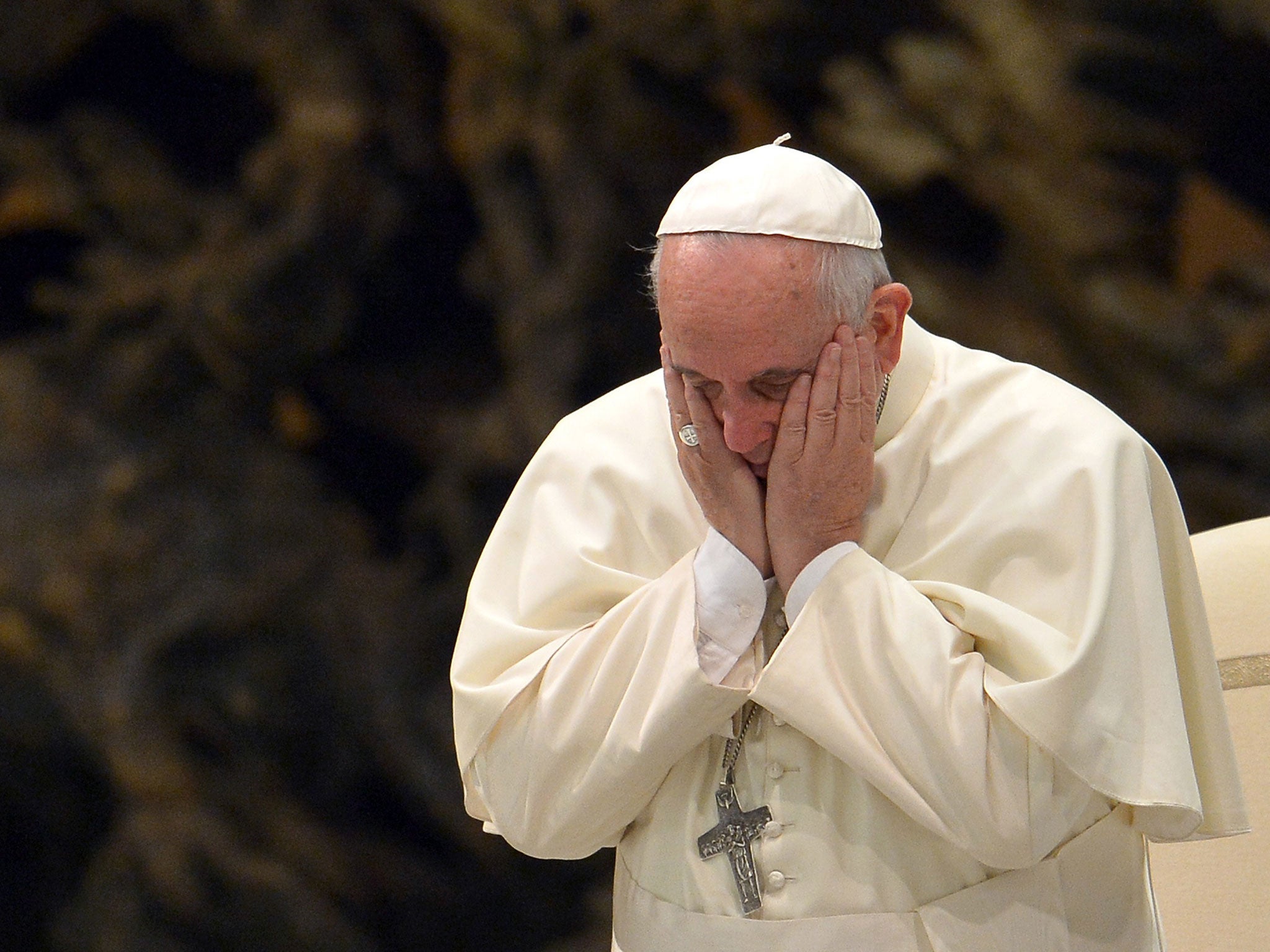God isn't 'a magician with a magic wand', according to the Pope, and there are non-believing vicars
Perhaps gods need to evolve to survive, just like the rest of us

Your support helps us to tell the story
From reproductive rights to climate change to Big Tech, The Independent is on the ground when the story is developing. Whether it's investigating the financials of Elon Musk's pro-Trump PAC or producing our latest documentary, 'The A Word', which shines a light on the American women fighting for reproductive rights, we know how important it is to parse out the facts from the messaging.
At such a critical moment in US history, we need reporters on the ground. Your donation allows us to keep sending journalists to speak to both sides of the story.
The Independent is trusted by Americans across the entire political spectrum. And unlike many other quality news outlets, we choose not to lock Americans out of our reporting and analysis with paywalls. We believe quality journalism should be available to everyone, paid for by those who can afford it.
Your support makes all the difference.On the subject of the gods, wrote the ancient philosopher Protagoras, “I am unable to say whether they exist or not. There are many obstacles to such knowledge, including the obscurity of the subject and the brevity of human life”. It has always seemed to me the most elegant description of agnosticism: gods simply aren’t the kind of thing about which one can express certainty. And anyway, life’s too short. If man is the measure of all things, as Protagoras claimed, who needs gods?
Happily, the Pope is better equipped to be certain about godly things than I am. And this week, he has declared himself certain that god isn’t a wizard. Bad news for Daniel Radcliffe, who was presumably hoping for the film role. But good news for those trying to square religious dogma with scientific fact. “When we read about Creation in Genesis, we run the risk of imagining God was a magician, with a magic wand able to do everything. But that is not so,” Pope Francis said.
He’s surely right, especially about god not being in possession of one of Ollivander’s finest creations. But also about the difficulty of reading things too literally: how many children were told at school that God created the earth in six days? And how many grow up and abandon their faith when they cannot square the idea of an all-powerful wand-wielder with innocent people suffering? If god can do whatever he likes, why doesn’t he want to stop children starving? What possible part of a benevolent plan can famine serve?
Obviously, I’m all in favour of people abandoning religion, but I can quite understand that the Pope would feel differently. It’s his job to try to maintain his flock, quite aside from his religious conviction, which I am taking as a given. But I might not do that if the Pope were a different kind of Christian. A YouGov poll has revealed this week’s other surprising theological news: 2 per cent of Anglican clergy believe that God is a man-made construct, and up to 16 per cent feel unclear about God.
I do see that 2 per cent is not an enormous figure (it amounts to around 30 people). But I really would have assumed that believing in God was pretty much the minimum requirement for becoming a vicar. Older members of the clergy were more godless than their younger counterparts: only 72 per cent of those who joined the ministry in the 1960s believe in God, compared with almost 90 per cent of those ordained since 2011. But even that statistic is rather odd. Did a tenth of the clergy who joined in 2011 already have doubts when they joined? Or has their faith shifted dramatically in the past three years? Or are they – like Pope Francis – simply allowing more space for intellectual argument over doctrinal certainty?
A wand-waving god must have explained a lot to ancient societies: if you lived in a time when no one could explain lightning, then believing it was a thunderbolt from Zeus made perfect sense. But even in the 5th century BC, questions were being asked. In Aristophanes’ The Clouds, Socrates asks who lightning hits, if Zeus is sending it. Blasphemers, comes the answer. What about when it hits an oak tree, he asks? Do they blaspheme much?
Perhaps gods need to evolve to survive, just like the rest of us. Zeus didn’t manage it, and so he was replaced by a god which made more sense to contemporary believers. Pope Francis knows that ignoring science, and giving Catholics no way to reconcile what they know with what they believe, is hardly likely to increase the influence of his church. In his own way, he is just as pragmatic as the ever-questioning Protagoras.
Is that a jogger on the grassy knoll?

Anyone who moves through city streets at speed – running, jogging or even speed-walking – will know the irritation caused by an unwary pedestrian. The one who suddenly stops dead because they’ve received a text message, and nature has decreed they can walk or read but not both, not simultaneously. The person who suddenly veers in front of you, having perhaps noticed a glittery item in a shop window. The prime minister who wanders into your path without a care in the world.
Walk past the home of the US Ambassador in London: it isn’t unusual for there to be armed police standing outside. But we take the security of our own elected leader so lightly that a jogger could bump into him before anyone thought he might be an assassin. Let’s hope theories about a second jogger on a grassy knoll will be in full flow by the weekend.
Join our commenting forum
Join thought-provoking conversations, follow other Independent readers and see their replies
Comments